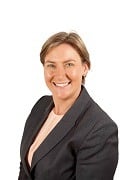Denial of Deductions for Vacant Land in Budget 2018
Natalie Claughton and Jacci Mandersloot, Directors of MC Tax Advisors, reflect on the Budget changes to deductions for vacant land and discuss future implications.
From July 1, 2019, deductions will be disallowed for holdings costs associated with vacant land, such as interest, land tax and council rates. There will be two exclusions to this:
- A property has been constructed on the land, has received approval to be occupied and is available for rent; or,
- The land is being used to carry on a business, including a business of primary production.
Announced as part of the 2018/19 Federal Budget, this measure is to address concerns that deductions are being improperly claimed where the land is not genuinely held for the purpose of earning assessable income. It is also to reduce the tax incentives of land banking, which can deny the use of land for housing or other development.
However, this appears to be a case of introducing wide reaching rules to target specific concerns. For instance, this could have a significant impact on taxpayers undertaking development as property investors.
Any investors who buy land to develop for long-term investment purposes are likely to be denied deductions incurred while the development is in the planning and building phases. Given that there can be a significant period of time between buying the land, obtaining approval and completing the development, this could result in significant cash flow impacts for these investors.
Land held by taxpayers that are in the business of property development will generally be excluded from these rules. It is noted, however, that property developers often use special purpose vehicles (‘SPVs’) to hold the land for their developments, with the development being undertaken by another entity. In this situation, the SPV may not be carrying on a business in its own right. It is therefore unclear at this stage how the new measures may apply to SPVs.
Where expenses are non-deductible under these measures, they can be added to the cost base of the asset if the expenses otherwise meet the cost base rules.
Although not applicable until 1 July 2019, taxpayers may wish to consider which properties and projects may be affected by these new rules, and the estimated effect on their tax and cash flow positions. Once legislation is released and more detail is known, proper consideration should be given to the outcomes and potential strategies.
 |
Natalie has extensive experience in advising the middle market on a wide range of taxation issues.
Having spent 15 years as a part of the Tax Consulting Division of Pitcher Partners, Natalie has gained an extensive technical knowledge, together with the ability to think commercially and practically.
Natalie has significant experience in advising on the taxation of trusts and companies, assisting multi-entity family and business groups manage their complex tax requirements.
Natalie also consults on a wide range of once-off transactions, including structuring, acquisitions and sales. Natalie has been widely involved in structuring and transactions for both the property industry and the professional services industry.
 |
Jacci Mandersloot
Jacci has over direct tax experience, specialising in consulting to privately owned businesses and high net worth individuals.
Jacci has previously worked within the tax division of a Big 4 firm, and most recently spent 13 years in tax consulting at Pitcher Partners.
Her strength lies in her ability to apply her extensive knowledge and experience in dealing with complex tax issues to find a solution for clients that not only ensures they satisfy their tax obligations, but that meets their commercial and personal objectives.
Jacci consults on all aspects of income tax to a wide range of clients across retail, manufacturing, property, including retirement villages, and private investment. She has advised extensively on the small business CGT concessions, including obtaining a number of successful private rulings. Jacci has also been involved in tax education through her membership of various Tax Institute education and forum committees.
Contact the authors at info@mctaxadvisors.com.au or visit MC Tax Advisors.